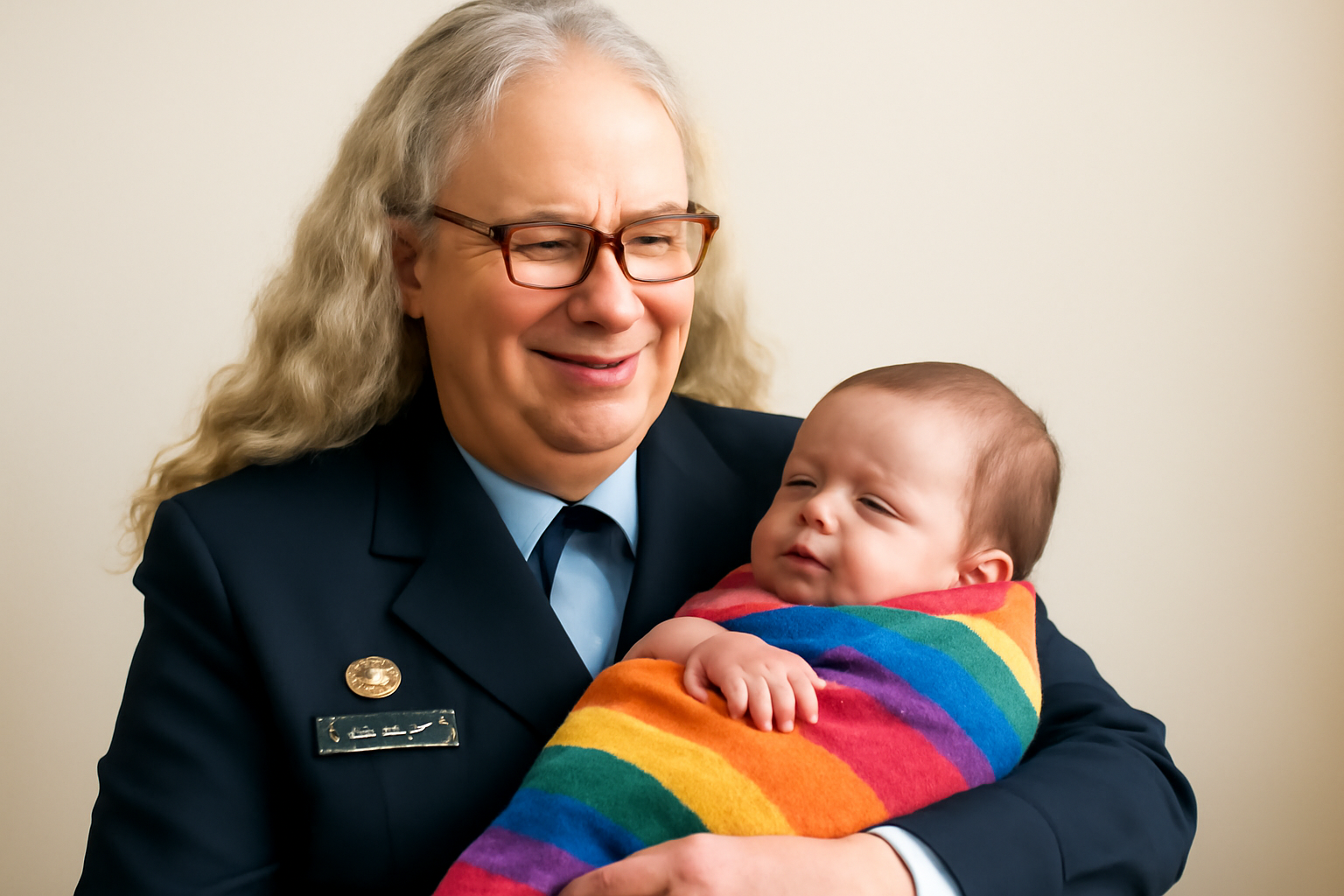
The United States Department of Health and Human Services has published a landmark report addressing the health inequities faced by intersex individuals. This unprecedented document highlights the significant harm caused by surgical procedures imposed on infants and others without their consent.
The report, titled "Advancing Health Equity for Intersex Individuals," was released by the Office of the Assistant Secretary for Health, led by Adm. Rachel Levine, the first openly transgender official to be confirmed by the U.S. Senate.
Recognizing the Harm
According to the report, there is increasing evidence that surgical interventions performed on intersex infants can cause enduring harm, such as stigma and a lack of trust in medical professionals. Historically and currently, medical practices have often prioritized surgical alterations to make infants conform to a binary sex, rather than addressing the health care needs specific to intersex individuals.
Research and advocacy efforts by intersex individuals have documented that non-consensual, medically unnecessary surgeries can lead to lifelong harm. These interventions affect individuals into their adolescence and adulthood, and intersex adults often encounter significant challenges in accessing high-quality, affirming health care.
The report defines intersex as an umbrella term for individuals born with variations in their sex characteristics or reproductive anatomy. Approximately 5 million people in the United States, or about 1.7% of the population, fit this definition, exhibiting 40 identified variations.
Impact and Challenges
These variations are most commonly identified at birth or during puberty, but adults may also discover intersex traits while seeking fertility care or through other unrelated medical procedures. While some intersex individuals may require specialized health care, many variations are considered a natural part of human diversity and do not threaten overall health. Nonetheless, many intersex individuals report undergoing medical interventions because their variations have been treated as disorders.
Surgical interventions can result in numerous adverse physical and mental health outcomes for intersex individuals. These include significant scarring, loss of sexual function, urinary or vaginal complications, chronic pain, and early-onset osteoporosis. Intersex people experience disproportionate rates of trauma and mental health issues due to a lack of affirming care.
Despite these risks, some medical professionals still encourage parents to consent to surgeries for intersex infants, often citing potential stigma associated with natural anatomical differences as justification.
Guiding Principles for Health Equity
The report suggests several guiding principles to enhance intersex health equity. These include protecting the civil rights of intersex individuals, supporting the role of parents in raising their intersex children, and promoting bodily autonomy and informed consent.
Additionally, the report emphasizes the importance of fostering self-acceptance among intersex individuals. Discussions about intersex variations can help many intersex adolescents and adults appreciate their bodies, thereby improving overall self-acceptance and mental health.
"Over the past decades, a growing body of evidence and advocacy by intersex people has demonstrated that current medical practices for intersex patients, especially children, can cause lifelong harm and must be reevaluated," states the report. "Even as this report acknowledges the pervasive barriers intersex people face in our society and health care system, it makes clear that, when intersex people are affirmed and receive high-quality care, they can thrive."
Stay informed on the issues affecting your community by subscribing to our newsletter. Connect with us today to ensure you never miss an update on critical topics that impact LGBTQ+ individuals around the world.
Related Posts
Jacob Elordi Shines in a Queer Love Story "On Swift Horses"
Jacob Elordi's latest film, "On Swift Horses," might leave you guessing at first, but at heart, it's a deeply moving queer love story. It's an adaptation from Shannon Pufahl's novel, brought vividly alive by director Daniel Minahan and writer Bryce Kass, weaving together themes that explore love, identity, and self-discovery on many levels. Love unfolds in 1950s America Step back in time with "O [...]
Creating New Models for LGBTQ+ Parenting: Embracing Community and Visibility
Empowering parenthood: envisioning a truly inclusive future "I'm all in when it comes down helping people realize their dreams about becoming parents," says Marea Goodman. She's not just a midwife; she's an author and founder who built Pregnant Together, an inclusive community with a heart. Goodman passionately believes that everyone, no matter who they are, deserves a shot at parenting. With tw [...]
Study Reveals Satisfaction Parity in Monogamous and Non-Monogamous Relationships
Rethinking relationship satisfaction: monogamy or not? There's a fascinating study from *The Journal Of Sex Research* that's turning some heads regarding relationship satisfaction. It's called "Countering The Monogamy-Superiority Myth," and it dives deep, challenging long-held beliefs about whether monogamous or non-monogamous relationships are more satisfying. Spoiler alert: it's not as clear-cu [...]